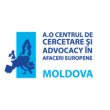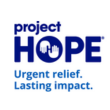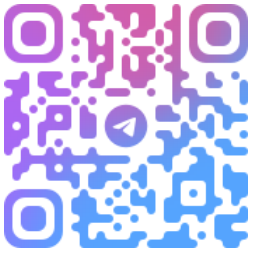Organizații vizate:
Anunțuri de Angajare
- Detalii
- Categorie: Angajări
National Consultant to provide psychological expertise and capacity building (multiple positions) - UN Women Moldova
Informațiile prezentate în articolul de mai jos pot să nu mai fie actuale sau să nu mai reflecte activitățile și programele curente. Anunțul este păstrat în arhivă pentru a asigura transparența și accesul public la informațiile despre inițiativele și proiectele implementate anterior.
UN Women grounded in the vision of equality enshrined in the Charter of the United Nations, works for the elimination of discrimination against women and girls; the empowerment of women; and the achievement of equality between women and men as partners and beneficiaries of development, human rights, humanitarian action and peace and security. Placing women’s rights at the center of all its efforts, the UN Women leads and coordinates the United Nations system efforts to ensure that commitments on gender equality and gender mainstreaming translate into action throughout the world. It provides strong and coherent leadership in support of Member States’ priorities and efforts, building effective partnerships with civil society and other relevant actors.
The work of UN Women in Moldova is guided by its Country Strategic Note 2023-2027, aligned with the UN Sustainable Development Cooperation Framework for Moldova (2023-2027), UN Women Global Strategic Plan, National Programs and Strategies and aims to contribute to the gender-responsive implementation of the 2030 Agenda for Sustainable Development. The Strategic Note focuses on four main areas: 1) Ending Violence against Women; 2) Women’s Leadership and Governance; 3) Women’s Economic empowerment and 4) Humanitarian and Peace development nexus and UN Coordination on GE.
Violence against women (VAW) is one of the most systematic and widespread human rights violations in the world. According to the survey “Well-being and Safety of Women” led by OSCE (Organization for Security and Cooperation in Europe) revealed that almost 40% of women in Moldova have experienced physical and/or sexual violence, which is higher than the OSCE-led survey average for the region (30%). High prevalence and incidence of violence against women in the country are contributed to by economic dependency of women and prevailing patriarchal social norms and gender stereotypes. In addition to this, reporting has been low compared to the overall prevalence, mostly due to stigma, but also due to lack of trust in existing legal and support institutions. One of the key barriers to reporting has been the inadequate presence of multidisciplinary and survivor-focused responses. Over 30% of the services that are listed as essential in the international standards do not exist in Moldova or are not efficient. The first report on monitoring of court proceedings in cases of domestic violence, sexual violence and trafficking in human beings highlighted that in most cases survivors continue to be re-victimized in their interaction with the justice system. There is also still limited access to justice and support services for survivors of violence and there are no standards or screening tools approved for the services provided to victims by professionals, hence no possibility for their accreditation and subsequent funding by the state.
In December 2023, UN Women started a project ”Women Increased Leadership for Resilient and Peaceful Societies” funded by Denmark, with interventions in Georgia, Republic of Moldova, Ukraine and ECA Regional Office. In Moldova, the project focuses on three thematic areas, such as Ending Violence against Women (EVAW), Women’s leadership and Women, Peace and Security Agenda, contributing to the implementation of three Outcomes of the UN Women Strategic Note 2023-2027.
The proposed interventions in Moldova under the thematic area „Ending Violence against Women“ will contribute to the implementation of the first Outcome of the UN Women Strategic Note 2023-2027: By 2027, institutions deliver human rights, evidence-informed and gender-responsive services for all with the focus on those who are left behind. UN Women Moldova will engage women and girls, survivors of violence and from other underrepresented groups (women with disabilities, elderly, WLHIV, etc.) to increase understanding of their rights under the EVAW amended legislation, access legal services and participate in decision-making processes. The project will also support enhancement of capacities of the justice system to effectively respond to cases of violence against women and girls (VAWG), in line with international norms and standards.
Along with the justice system, the 112 Emergency Services are crucial actors in addressing cases of gender-based violence (GBV), including domestic violence. When a victim seeks help through the 112-emergency number, it marks the initial point of contact with the justice system. The swift response and professional handling of the call by emergency operators are paramount, as they can significantly impact the victim's safety and the subsequent investigation. The information gathered during the call, including the victim's statement and the perpetrator's details, is essential for law enforcement agencies to take immediate action and initiate the legal process. This seamless collaboration between emergency services and the justice system ensures a timely and effective response to incidents of GBV, ultimately contributing to the protection of victims and the pursuit of justice for perpetrators.
The well-being of first responders in emergency services is paramount when dealing with cases of GBV, which constitute around 30% of the daily number of received calls. These professionals often encounter deeply traumatic situations, requiring them to exhibit exceptional sensitivity and empathy towards victims. To effectively provide support and assistance, first responders must have the ability to remain composed in highly charged environments. However, constant exposure to such distressing incidents can take a significant toll on their mental health, potentially leading to conditions like compassion fatigue and post-traumatic stress disorder. Therefore, it is crucial to prioritize the mental health and well-being of these individuals through adequate training, counseling services, and supportive work environments. By ensuring their own well-being, first responders can continue to provide essential support to victims of GBV.
Moreover, to ensure the safety of victims and the effectiveness of emergency response, existence of specific protocols for handling domestic violence cases, including cases of suicide, is essential. In cases of violence, perpetrators may be able to overhear victims during calls for help, making direct requests for police assistance challenging. Therefore, emergency service operators must be trained to employ specific communication techniques to assess the situation without alerting the abuser. Additionally, readily accessible self-help materials, such as videos, audio recordings, and/or online platforms, can empower operators to proactively manage their mental health and seek support when needed.
In this context, UN Women is looking to contract one or more consultants that will serve as resilience and burnout prevention experts, providing training, evaluation of the wellbeing of the staff, coaching and or mentoring and other relevant technical assistance to the 112 Emergency Service operators, in cases of gender-based violence against women.
Interested candidates are encouraged to submit their online applications by December 01, 2024 through the following link: National Consultant to provide psychological expertise and capacity building (EVAW) - Local post for Residents of the Republic of Moldova - UN Women Careers . Applications should include the following documents:
- Personal P11 (P11 can be downloaded from: https://www.unwomen.org/sites/default/files/Headquarters/Attachments/Sections/About%20Us/Employment/UN-Women-P11-Personal-History-Form.doc )
- A cover letter (maximum length: 1 page) to include a brief overview about which of the relevant previous experiences that makes the candidate the most suitable for the advertised position.
Only short-listed applicants will be contacted.
Note:
In July 2010, the United Nations General Assembly created UN Women, the United Nations Entity for Gender Equality and the Empowerment of Women. The creation of UN Women came about as part of the UN reform agenda, bringing together resources and mandates for greater impact. It merges and builds on the important work of four previously distinct parts of the UN system (DAW, OSAGI, INSTRAW and UNIFEM), which focused exclusively on gender equality and women's empowerment.
Diversity and inclusion:
At UN Women, we are committed to creating a diverse and inclusive environment of mutual respect. UN Women recruits, employs, trains, compensates, and promotes regardless of race, religion, color, sex, gender identity, sexual orientation, age, ability, national origin, or any other basis covered by appropriate law. All employment is decided on the basis of qualifications, competence, integrity and organizational need.
If you need any reasonable accommodation to support your participation in the recruitment and selection process, please include this information in your application.
UN Women has a zero-tolerance policy on conduct that is incompatible with the aims and objectives of the United Nations and UN Women, including sexual exploitation and abuse, sexual harassment, abuse of authority and discrimination. All selected candidates will be expected to adhere to UN Women’s policies and procedures and the standards of conduct expected of UN Women personnel and will therefore undergo rigorous reference and background checks. (Background checks will include the verification of academic credential(s) and employment history. Selected candidates may be required to provide additional information to conduct a background check.









